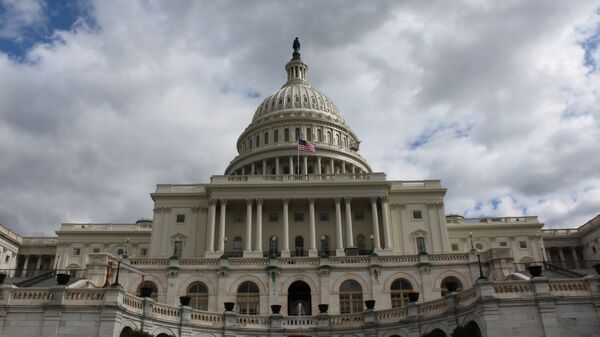WASHINGTON (Sputnik), Leandra Bernstein — Members of the international community may seek to avoid transactions through the US financial system if Congress rejects the Iran nuclear agreement, US Vice President’s National Security Adviser Colin Kahl told Sputnik.
“The general concern is at some point countries might give up operating predominantly through the US financial system, if we keep threatening that to do business with us you can’t do business with anybody else,” Kahl said on Thursday.
On Tuesday, Secretary of State John Kerry warned that the failure of Congress to approve the international nuclear agreement with Iran would undermine the US dollar's position as the world reserve currency.
In mid-July, Iran agreed to limit its nuclear program to peaceful purposes in exchange for international sanctions relief.
The sanctions relief includes the lifting of US secondary sanctions, which have historically deterred other countries and entities from doing business with sanctioned Iranian entities.
In a Thursday speech at the Center for Strategic International Studies, Kahl warned that major US trading partners and allies, wishing to avoid secondary sanctions, could choose to transact with Iran through their central banks “and dare us to start trade wars with the most important economies on planet Earth.”
In recent years, US sanctions have limited the access of major Asian economies, including China, India, Japan, South Korea and Taiwan from purchasing cheaper Iranian energy resources.
Beginning in 2011, the United States and European Union imposed the harshest round of sanctions on Iran, leading to a nearly 100 percent drop in Iranian oil exports.
In the past, Iran has exported substantial amounts of oil and natural gas to the European Union, Turkey, Japan, South Korea as well as other major US allies.



